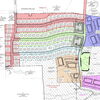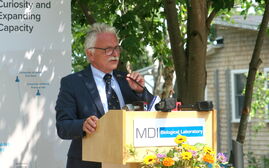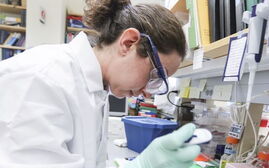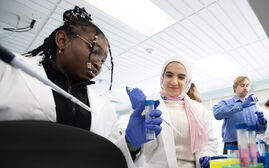Processing Your Payment
Please do not leave this page until complete. This can take a few moments.
- News
-
Editions
-
- Lists
-
Viewpoints
-
Our Events
-
Event Info
- Women's Leadership Forum 2025
- On the Road with Mainebiz in Bethel
- Health Care Forum 2025
- On The Road with Mainebiz in Greenville
- On The Road with Mainebiz in Waterville
- Small Business Forum 2025
- Outstanding Women in Business Reception 2025
- On The Road with Mainebiz in Bath
- 60 Ideas in 60 Minutes Portland 2025
- 40 Under 40 Awards Reception 2025
- On The Road with Mainebiz in Lewiston / Auburn
- 60 Ideas in 60 Minutes Bangor 2025
Award Honorees
- 2025 Business Leaders of the Year
- 2024 Women to Watch Honorees
- 2024 Business Leaders of the Year
- 2023 NextUp: 40 Under 40 Honorees
- 2023 Women to Watch Honorees
- 2023 Business Leaders of the Year
- 2022 NextUp: 40 Under 40 Honorees
- 2022 Women to Watch Honorees
- 2022 Business Leaders of the Year
-
-
Calendar
-
Biz Marketplace
- News
- Editions
- Lists
- Viewpoints
-
Our Events
Event Info
- View all Events
- Women's Leadership Forum 2025
- On the Road with Mainebiz in Bethel
- Health Care Forum 2025
- On The Road with Mainebiz in Greenville
- On The Road with Mainebiz in Waterville
- + More
Award Honorees
- 2025 Business Leaders of the Year
- 2024 Women to Watch Honorees
- 2024 Business Leaders of the Year
- 2023 NextUp: 40 Under 40 Honorees
- 2023 Women to Watch Honorees
- 2023 Business Leaders of the Year
- + More
- 2022 NextUp: 40 Under 40 Honorees
- 2022 Women to Watch Honorees
- 2022 Business Leaders of the Year
- Nomination Forms
- Calendar
- Biz Marketplace
Accelerator hub to boost growth of bio-tech industry in Maine and beyond
 Courtesy / Novo Biosciences
Novo Biosciences co-founder Kevin Strange, former president of Mount Desert Island Biological Lab, and MDI Biological Laboratory associate professor Voot P. Yin. Strange is the co-investigator on the DRIVEN accelerator hub initiative. He and Yin are co-founders of a biomedical startup called Novo Biosciences.
Courtesy / Novo Biosciences
Novo Biosciences co-founder Kevin Strange, former president of Mount Desert Island Biological Lab, and MDI Biological Laboratory associate professor Voot P. Yin. Strange is the co-investigator on the DRIVEN accelerator hub initiative. He and Yin are co-founders of a biomedical startup called Novo Biosciences.
A biosciences hub is in the early stages of developing a network that would foster cooperation and growth of the industry in Maine and Northeast.
A National Institutes of Health-funded consortium in the Northeast, which includes the Mount Desert Island Biological Laboratory in Bar Harbor and Maine Medical Center in Portland, is aimed at providing funds, mentoring, education, investment, networking and other essential resources for the commercialization of human health-focused life science discoveries.
The consortium is called the DRIVEN Biomedical Technology Accelerator Hub. It includes entrepreneurs, inventors, basic scientists, biotech industry experts, venture capitalists and high net worth individuals.
The Northeast hub in one of four across the country. The hub is part of the NIH’s Institutional Development Award (IDeA) program, whose goal is to build research capacities in states, including Maine, that historically have had low levels of NIH funding. The IDeA program is funded by the National Institute of General Medical Sciences, according to a National Institutes of Health news release.
Novo Biosciences co-founder Kevin Strange, former president of Mount Desert Island Biological Lab and the co-investigator on the accelerator hub initiative, told Mainebiz the idea for the hub started about three years ago.
“Folks at the National Institute of General Medical Sciences were interested in focusing on how to move discoveries made in labs into commercialization, new cures, therapies etc.,” he said. “ I was part of a panel convened at NIH to discuss this. One idea that came out was creating an accelerator hub in each of the four IDeA regions in the country.”
The goal of the hub, he explained, “is to stimulate more thinking about the idea of how you move a discovery from a lab down the pipeline into a company and ultimately into a new diagnostic drug, therapy, device, etc. The goal is to provide awareness of the importance of doing this, but also of the incredible resources you need. Developing a drug or device is lot higher risk and more expensive than, say, creating a craft brewery. So the goal is to provide investment and expertise that people can tap into.”
The grant, awarded last September, is for three years and roll-out began with the consortium’s first face–to-face meeting in January, he said.
“We’re organizing all the partners and starting to feel our way through it, how to get resources put together, how to start to bring in investors and entrepreneurs and start-up companies and get them involved,” he said. “We’re in the very early stages of developing this.”
Focus: Moving toward commercialization
His company, Novo Biosciences, is an example of how difficult it is to make a go of a biomedical company in Maine, he said.
“Drug development is the single most risky business you can be in,” he said. “It’s a very long runway, it takes a long time, there’s a huge amount of risk involved and it’s extraordinarily expensive. Advancing through phase two clinical trials for one indication that we’re pursuing, heart attacks, will cost $25 million to $30 million. The people who are comfortable with that type of investment don’t exist in Maine. So the option is to say, ‘We won’t do it in Maine. We’ll move to Boston.’ The goal of the hub is prevent things like that from leaving Maine.”
By contrast, he said, “If you’re in Boston, you’re in one of the biggest, hottest, most significant biomedical research environments in the world. You’ve got Harvard, MIT, Tufts, all of these pharmaceutical companies, massive wealth. They can walk out their door and get hit in the head with investment. The other thing is, this is a high-risk business. In Boston, you’re in an environment where you have a massive ecosystem and infrastructure and intellectual wealth. You have lots of smart people in Maine, but they’re spread out. That increases the risk for a Boston investor to come up, for example, to MDI and invest in a company like Novo Biosciences, when they can go out in Boston and find half a dozen investments within a block’s walk.”
He continued, “The hub will say, ‘Here are incredible opportunities in Maine and, by the way, these companies are part of this ecosystem created by the hub.’ So hopefully they become more comfortable with the risk: We’re part of something much larger and that hopefully reduces the fears and increases the risk tolerance.”
The focus of the hub is not just biomedicine but any life science activity, he added.
“The timing is good for Maine Med,” Maine Medical Center’s director of technology transfer, Todd Keiller, said. “Senior leadership at MaineHealth has organized an innovation group that’s trying to figure out better ways to do product and process innovation at the hospital, which will hopefully result in better patient care.”
Maine Medical Center has several start-ups in the works, Keiller said. One is a group that’s developing a robotic clot retriever, aimed at improving patient outcomes. Another is a unique scheduling program that’s worked well at MMC and is ready for expansion.
The hub, he said, might help both groups move from idea to commercialization.
The consortium will reach out to additional organizations, like Bigelow Laboratory, and Colby, Bates and Bowdoin colleges, as it moves forward, he said.
Other members of the Northeast hub include Brown University in Providence, R.I.; Dartmouth College in Hanover, N.H.; Celdara Medical in Lebanon, N.H.; University of Delaware; University of New Hampshire; University of Rhode Island; University of Vermont; and Simbex, a medical devices design company in Lebanon, N.H.
Awards will total almost $2 million in the first year and potentially more than $13 million over three years, pending fund availability.
The IDeA program builds research capacities in states that historically have had low levels of NIH funding by supporting basic, clinical, and translational research; faculty and student development; and scientific infrastructure improvements. The program also enhances the ability of investigators to compete successfully for additional research funding and serves the research needs of medically underserved communities. The 23 IDeA states and Puerto Rico historically have had disproportionately few Small Business Innovation Research and Small Business Technology Transfer awards.
At a glance
National Institute of General Medical Sciences is a part of the National Institutes of Health that supports basic research to increase our understanding of biological processes and lay the foundation for advances in disease diagnosis, treatment, and prevention. For more information on the Institute's research and training programs, go online here.
National Institutes of Health, the nation's medical research agency, includes 27 Institutes and Centers and is a component of the U.S. Department of Health and Human Services. NIH is the primary federal agency conducting and supporting basic, clinical, and translational medical research, and is investigating the causes, treatments, and cures for both common and rare diseases.














Comments